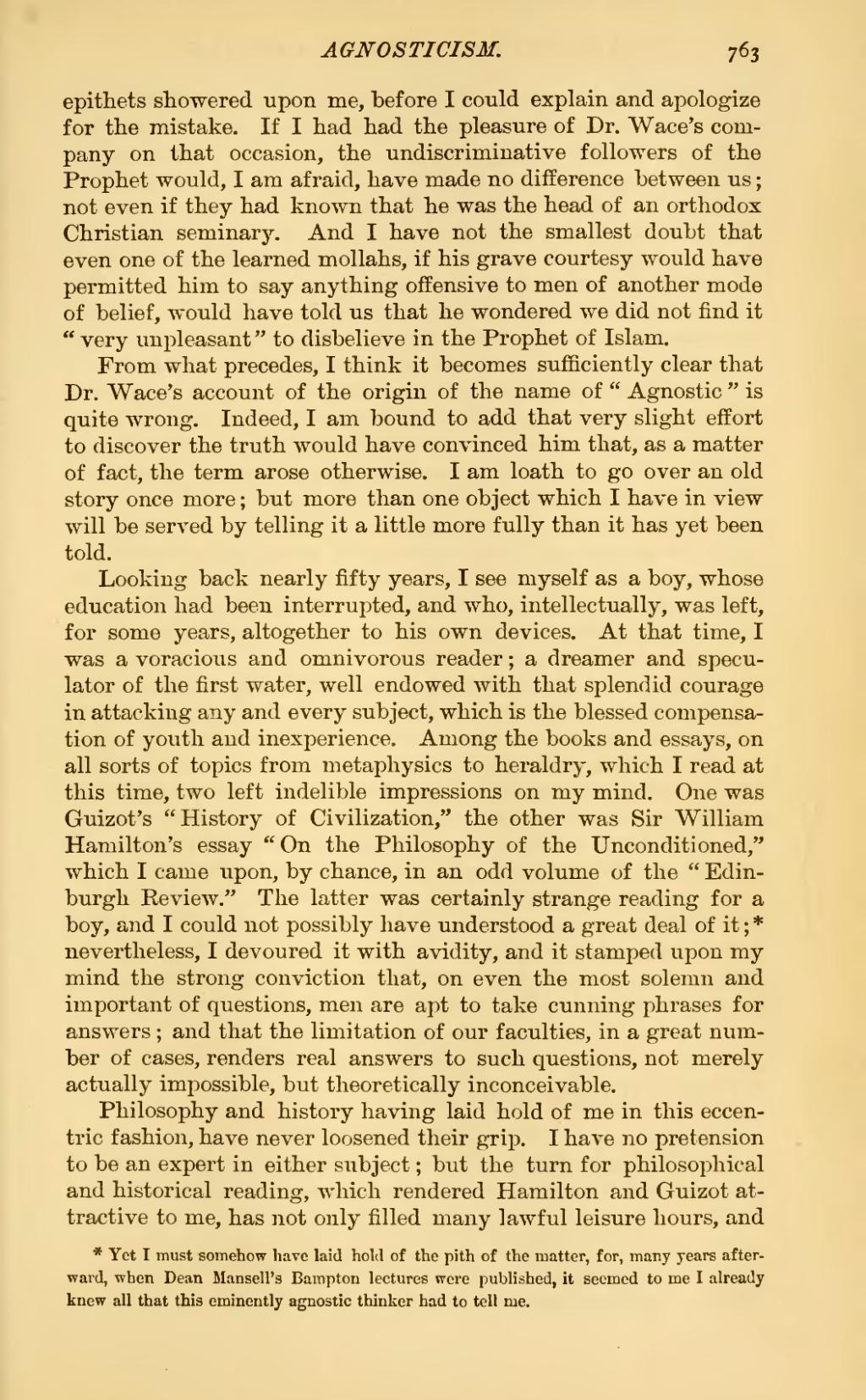epithets showered upon me, before I could explain and apologize for the mistake. If I had had the pleasure of Dr. Wace's company on that occasion, the undiscriminative followers of the Prophet would, I am afraid, have made no difference between us; not even if they had known that he was the head of an orthodox Christian seminary. And I have not the smallest doubt that even one of the learned mollahs, if his grave courtesy would have permitted him to say anything offensive to men of another mode of belief, would have told us that he wondered we did not find it "very unpleasant" to disbelieve in the Prophet of Islam.
From what precedes, I think it becomes sufficiently clear that Dr. Wace's account of the origin of the name of "Agnostic" is quite wrong. Indeed, I am bound to add that very slight effort to discover the truth would have convinced him that, as a matter of fact, the term arose otherwise. I am loath to go over an old story once more; but more than one object which I have in view will be served by telling it a little more fully than it has yet been told.
Looking back nearly fifty years, I see myself as a boy, whose education had been interrupted, and who, intellectually, was left, for some years, altogether to his own devices. At that time, I was a voracious and omnivorous reader; a dreamer and speculator of the first water, well endowed with that splendid courage in attacking any and every subject, which is the blessed compensation of youth and inexperience. Among the books and essays, on all sorts of topics from metaphysics to heraldry, which I read at this time, two left indelible impressions on my mind. One was Guizot's "History of Civilization," the other was Sir William Hamilton's essay "On the Philosophy of the Unconditioned," which I came upon, by chance, in an odd volume of the "Edinburgh Review." The latter was certainly strange reading for a boy, and I could not possibly have understood a great deal of it;[1] nevertheless, I devoured it with avidity, and it stamped upon my mind the strong conviction that, on even the most solemn and important of questions, men are apt to take cunning phrases for answers; and that the limitation of our faculties, in a great number of cases, renders real answers to such questions, not merely actually impossible, but theoretically inconceivable.
Philosophy and history having laid hold of me in this eccentric fashion, have never loosened their grip. I have no pretension to be an expert in either subject; but the turn for philosophical and historical reading, which rendered Hamilton and Guizot attractive to me, has not only filled many lawful leisure hours, and
- ↑ Yet I must somehow have laid hold of the pith of the matter, for, many years afterward, when Dean Mansell's Bampton lectures wore published, it seemed to me I already knew all that this eminently agnostic thinker had to tell me.

